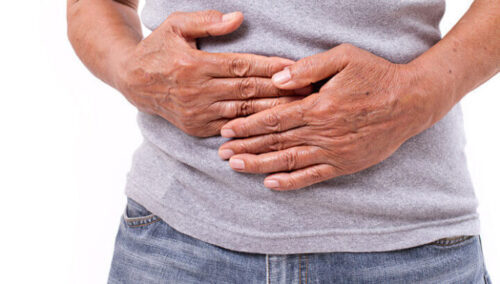I think we can all agree, constipation is no laughing matter! Up to 42 million folks in the U.S. suffer from constipation and over 2.5 million find it necessary to visit their doctor to seek treatment for it. Constipation is defined as having fewer than three bowel movements per week and occurs when fecal matter is difficult to pass out of the body.
Incomplete evacuation can cause bloating, gas, lower back pain, fatigue, anxiety and affects women more than men. Older age increases someone’s risk of becoming constipated. The highest risk is for people over 65. For folks over age 50, 10 percent of all men and 20 percent of all women have frequent constipation.
Each year, consumers spend over $800 million on over-the-counter constipation relief laxatives, yet the condition is oftentimes preventable by making a few dietary changes. Eating fiber-rich foods and drinking lots of fluids is the best way to get the poop out of your system. High-fiber foods are usually low in calories and fat but packed with vitamins and minerals. The National Academy of Medicine recommends men 50+ years old to get 30 grams of fiber per day and for women 50+ to get 21 grams of fiber per day.
Here are some fiber-rich foods that fight constipation.
- Prunes—Yummy, and sweet, prunes are a natural remedy for constipation. About three prunes equal 2 grams of fiber. Prunes contain phenolic compounds that stimulate beneficial gut bacteria that result in a laxative effect. Pop a few in your mouth or enjoy them in smoothies, cereals, baked goods, or even stews.
- Leafy greens–Spinach, Brussels sprouts, kale, and broccoli are good greens that are rich in fiber. These leafy greens help bulk up stools which makes them easier to pass through the gut. A standard 2-cup serving of spinach contains 1.4 gr. of fiber, one cup of Brussels sprouts has 3.3 gr., one cup of kale has 2.6 gr., one cup of broccoli has 2.4 gr. Try making a healthy-packed salad with raw leafy greens.
- Sweet Potato—A medium-sized sweet potato contains about 3.8 gr. of fiber which is 15% of the recommended daily intake. Enjoy a sweet potato roasted, steamed, mashed, or boiled.
- Nuts and seeds—Feel free to go nuts to get your fiber fill! An ounce of almonds contains 4 gr. of fiber, an ounce of pistachios has 3 gr., an ounce of sesame seeds has 3 gr. and an ounce of flaxseed has a whopping 8 gr. Sprinkle a few nuts or seeds over cereal, yogurt, and desserts.
- Potatoes—Folks just love potatoes which are a popular healthy veggie. Just one medium Russet contains 4 gr., while a medium red-skinned potato contains 3 gr. Go ahead and cook potatoes without peeling them, then add to casseroles, stews, and soups or enjoy it baked.
- Avocado—Gotta love avocados, smooth, and almost creamy in texture that is chockfull of fiber, just half provides 9 gr. Chop up an avocado and toss into a salad or just eat it as is, in its beautiful and delicious natural state.
- Raspberries—Just one cup of fiber-fortified raspberries will provide you with 8 gr. of fiber. Juice a few raspberries with fruits like apples, pears, oranges, or bananas (all have around 3 to 4 gr. of fiber) and have a fiber-fueled fiesta in your glass!
- Beans—The all-star fiber winners are beans such as lentils (15.6 gr. per cup), black beans (15 gr. per cup), and split pea (16.3 gr. per cup). Beans are tasty any way you prepare them in soups, chili’s and you can even add them to salads. If you’re thinking about cutting out meat, beans are a filling way to get the ball rolling.
- Cereals—If you’d rather get your fiber from breakfast cereal, read the labels and see which one offers at least 5 gr. A few good fiber-packed cereals to consider—General Mills Fiber One (1/2 cup has 14 gr.), Kashi Go Lean (1¼ cup has 13 gr.), Post Shredded Wheat (one cup has 9 gr.), and Cascadian Farm Organic (3/4 cup has 8 gr.)
If you’ve had constipation for two weeks or more then it is time to see a doctor for further evaluation. If you experience pain, bleeding, or unexplained weight loss, make sure to let your health practitioner know. If left untreated, constipation can lead to other more serious conditions like rectal prolapse where a part of the intestine pushes out through the anus as a result of pushing too hard.











